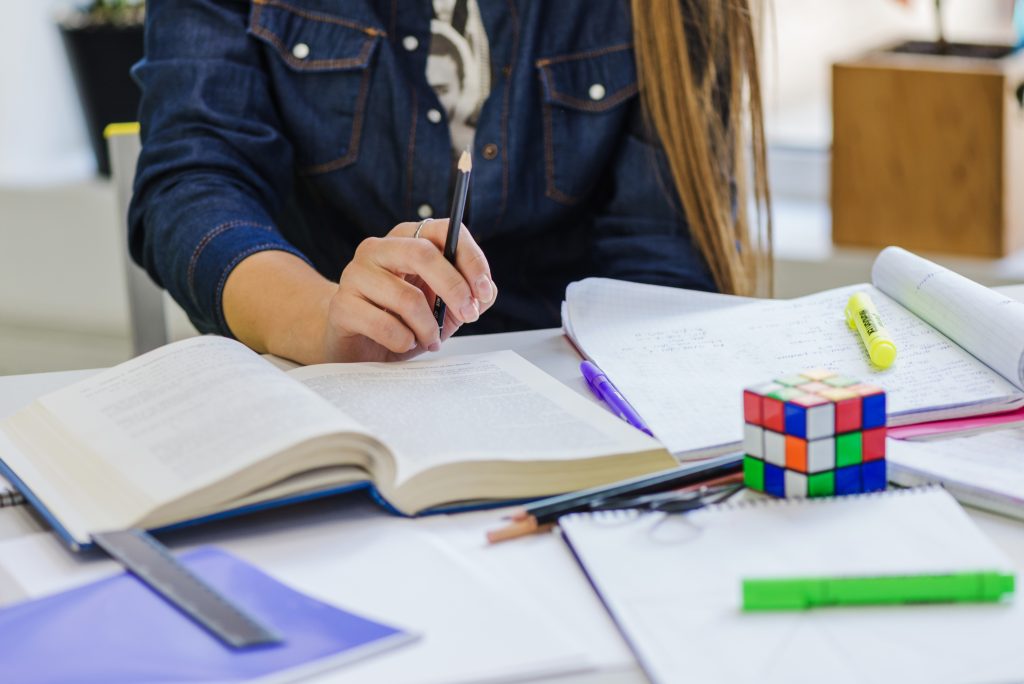Exams can be overwhelming, but with the right strategies, you can reduce stress and perform at your best. Whether it’s time management, effective study techniques, or mental health practices, small changes can make a significant impact. This article provides practical strategies to help manage exam stress while improving your mental well-being and academic performance.
Identify the Source of Your Stress
The first step in managing exam stress is identifying the root cause. Stress can arise from various factors, such as fear of failure, tight deadlines, or unpreparedness due to an extensive syllabus. Understanding what triggers your stress allows you to implement targeted solutions.
If you’re overwhelmed because you don’t know where to start, break your study material into smaller, manageable sections. This “chunking” method makes studying more structured and less intimidating.
Effective Memorization Techniques
Memorization techniques can significantly reduce stress before exams by improving retention and minimizing last-minute cramming. Here are some proven methods:
- Active Recall: Instead of passively reading notes, test yourself by recalling key concepts without looking.
- Spaced Repetition: Review material at increasing intervals to reinforce long-term memory.
- Chunking: Divide large amounts of information into smaller sections that are easier to process.
- Mnemonics: Use acronyms, rhymes, or visual associations to enhance memory retention.
- Mind Mapping: Create diagrams that visually organize information, making it easier to recall.
Using these techniques will boost your confidence and reduce stress during exams. Additionally, incorporating practice quizzes into your study routine can further solidify knowledge and highlight areas needing improvement.
Utilize the Priming Study Technique
Priming prepares your brain for learning by setting a foundation for better comprehension and retention. Before starting a study session, quickly review what you studied last time or outline the key topics for the day. This helps your brain transition into ‘study mode’ and reduces mental fatigue.
Additionally, using previewing techniques such as skimming through headings, diagrams, or summaries before deep study can enhance understanding. Engaging in a brief self-assessment before diving into new material can also reinforce previously learned concepts and highlight gaps in knowledge.
Take Regular Breaks to Prevent Burnout
Studying for long stretches without breaks leads to burnout, decreased productivity, and increased stress. Use techniques like the Pomodoro Method:
- Study for 25 minutes, then take a 5-minute break.
- After four study sessions, take a longer break of 15-30 minutes.
- Adapt your break times based on your energy levels to maintain focus.
In addition, incorporate physical activity such as stretching, walking, or exercising to reduce stress hormones and improve focus. Short mindfulness exercises or deep breathing techniques can also help refresh your mind and maintain concentration throughout your study sessions.
Manage Time Effectively
Poor time management is a significant cause of exam stress. Create a study schedule that allocates time for each subject and stick to it. Using digital tools like Google Calendar, Notion, or Trello can help you balance academic and personal commitments while tracking progress effectively.
Prioritize complex subjects when your concentration is highest and schedule review sessions before exams to reinforce learning. Additionally, setting realistic goals and breaking larger tasks into smaller, manageable steps can prevent procrastination and keep you on track.
Use time-blocking techniques to allocate specific study periods for each subject. Incorporate buffer time in case some topics take longer than expected. Regularly reviewing and adjusting your schedule based on progress ensures you stay productive without feeling overwhelmed.
Keep Your Study Materials Organized
An organized study environment can minimize distractions and reduce stress. Keep your notes, textbooks, and resources easily accessible. Designate a distraction-free study space to maintain focus and efficiency.
Use color-coded notes, flashcards, and digital folders to keep your materials well-structured and easy to navigate. Categorizing your notes by topic or subject can make retrieval easier and streamline your study sessions.
Additionally, keep a checklist of topics you’ve covered and those that need more review. Using digital tools such as Evernote or OneNote can help consolidate study materials and ensure all essential resources are in one place. An organized workspace contributes to a more productive and stress-free study environment.
Prioritize Your Mental Health
Exams can take a toll on your mental well-being. Incorporate stress-reducing activities into your routine:
- Meditation: Spend 5-10 minutes a day practicing mindfulness using apps like Headspace or Calm.
- Breathing Exercises: Deep breathing helps calm your nerves and improve concentration.
- Journaling: Writing down thoughts can help you process emotions and reduce anxiety.
- Healthy Diet: Avoid excessive caffeine and processed foods, opting for brain-boosting meals rich in proteins, vitamins, and omega-3s.
- Social Support: Talk to friends, family, or a mentor to share your concerns and seek encouragement.
- Engage in Hobbies: Taking time for activities you enjoy, like reading, music, or sports, can help relieve stress and keep your mind refreshed.
Get Plenty of Sleep
While it may be tempting to study late into the night, adequate sleep is essential for brain function. Sleep helps consolidate memories, improves focus, and enhances problem-solving skills. Aim for 7-9 hours of sleep in the days leading up to your exam.
To improve sleep quality, establish a consistent bedtime routine and limit screen time before bed. Avoid caffeine and heavy meals before sleeping, as they can interfere with rest. Try relaxation techniques like reading a book, listening to calming music, or practicing deep breathing to help your body unwind before sleep. Maintaining a cool, dark, and quiet sleeping environment can also promote better sleep quality and ensure you wake up refreshed and ready to study.
Practice with Mock Tests
Taking practice tests can help reduce test-day stress and improve familiarity with the exam format. Here are some effective strategies:
- Preview the Exam: Skim through the test to get an overview of the questions and identify areas requiring more focus.
- Read Carefully: Take your time to thoroughly understand each question before answering to avoid misinterpretation.
- Stay Calm: If you get stuck on a question, move on and return to it later to maintain momentum.
- Simulate Real Conditions: Take practice tests under timed conditions to get accustomed to working within the exam’s time constraints.
- Review Mistakes: Go over incorrect answers to identify patterns and areas that need improvement.
- Use a Variety of Questions: Practice different question types to build confidence and adaptability.
Practicing with past exams, maintaining a consistent study schedule, and getting enough rest before the test will improve your performance. Timed mock exams can also help simulate real test conditions and enhance time management skills.
Minimize Distractions
Distractions can derail your focus and add unnecessary stress. To stay on track:
- Turn off notifications or put your phone in silent mode to prevent unnecessary interruptions.
- Use productivity apps like Forest, StayFocusd, or Cold Turkey to block distracting websites and social media.
- Study in a quiet, comfortable environment to maintain concentration and minimize disruptions from noise.
- Listen to instrumental music, white noise, or ambient sounds to improve focus if background noise is unavoidable.
- Establish a clear study schedule and set specific goals for each session to maintain momentum and avoid procrastination.
- Keep your study area organized and clutter-free to create a calm and focused atmosphere.
Visualize Success
Visualization is a powerful technique used by athletes and high achievers. Picture yourself confidently taking the exam, answering questions with ease, and achieving the results you desire. Positive visualization can boost motivation, alleviate stress, and enhance overall performance.
Writing down positive affirmations or imagining yourself overcoming challenging questions can help instill self-belief. Additionally, practicing visualization daily, combining it with deep breathing, and mentally rehearsing exam scenarios can increase confidence and reduce test anxiety. The more vividly you picture success, the more prepared and in control you will feel on exam day.
Ask for Help When Needed
If you’re struggling with certain subjects or concepts, don’t hesitate to ask for help. Study groups, tutors, and professors can provide valuable guidance and reduce anxiety. Discussing topics with peers can reinforce understanding and provide different perspectives on complex concepts.
Conclusion
Managing stress during exams is crucial for both psychological and physical well-being. By implementing effective study techniques, maintaining mental health, and staying organized, you can significantly reduce anxiety and perform at your best. Developing a balanced study routine, incorporating relaxation exercises, and seeking support from peers or mentors can further enhance your ability to handle exam pressure efficiently.
Frequently Asked Questions
Effective relaxation techniques include proper time management, deep breathing exercises, taking short breaks, and practicing positive visualization. These methods help reduce stress and enhance focus.
Turn off notifications, enable ‘Do Not Disturb’ mode, or use apps like Forest and StayFocusd to block distractions. If possible, keep your phone in another room to avoid temptation.
Use active recall, spaced repetition, chunking, and mnemonics to improve retention. Creating mind maps and summarizing concepts in your own words can also enhance memory.
Practice deep breathing, meditation, or journaling before and during the exam. Staying organized and well-prepared also reduces anxiety.





